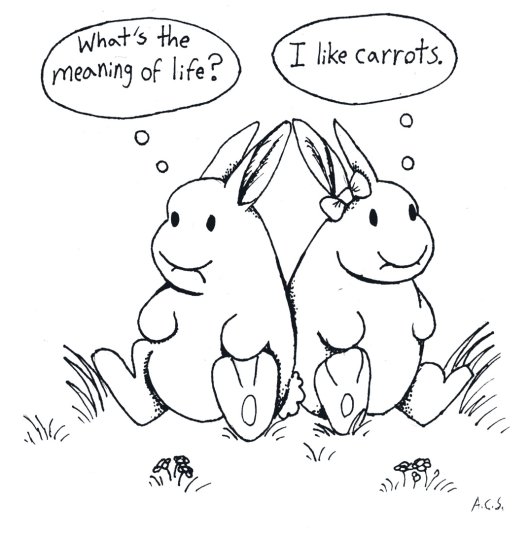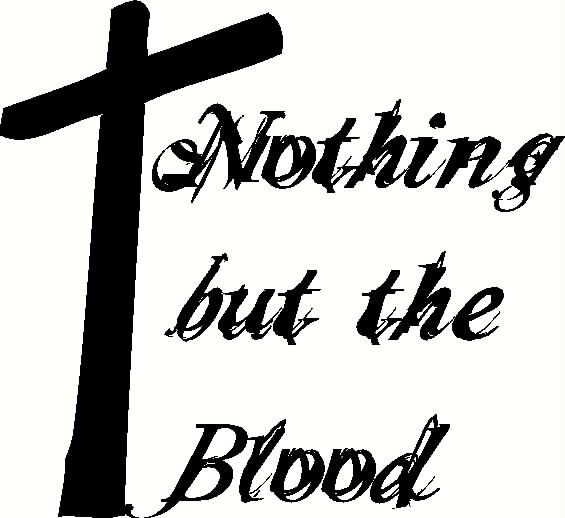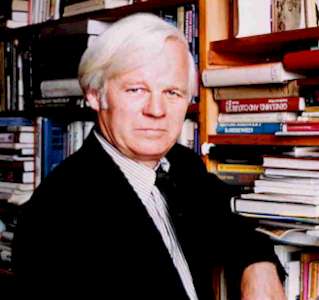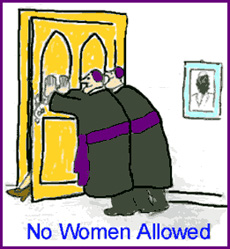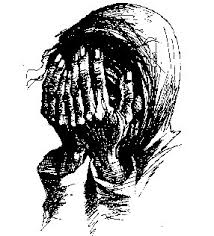From this it is argued that such a contradiction is resolved by God's enabling a person to receive his grace, for such is the nature of grace that it brings about what cannot be accomplished by a person's will. To begin with then, a person is created predisposed against God's grace, but then by God's grace is favourably inclined to God again. It should strike the reader as suspicious that God's initial activity toward his highest creation -- people -- is, as original sin shows, lowly and capricious: he sets the conditions by which to manipulate a person's will while declaring the most extreme results for the outcomes of his own manipulations. That is if a person's original state of separation -- the one that he creates people in -- is not reconciled, that person is condemned eternally to hell. If that same person is enabled by God's grace to reconcile to God, that person is eternally saved.
What is interesting to realise in this scenario is that despite the efforts of apologists to place a person's "eternal address" (Victor Hugo) on their own shoulders, people never had free choice to begin with. For if it is true that people are born in original sin (that is, they have inherited an inclination to sin and evil), the their moral tendencies have already been weighted in a certain direction. So saying, people are not so much freely choosing as they are struggling to beat the odds of a choice already made from them. Thus the reason for Ayn Rand's words:
"A sin without volition is a slap at morality and an insolent contradiction in terms: that which is outside the possibility of choice is outside the province of morality... Do not hide behind the cowardly evasion that man is born with free will, but with a 'tendency' to evil. A free will saddled with a tendency is like a game with loaded dice. It forces man to struggle through the effort of playing, to bear the responsibility and pay for the game, but the decision is weighted in favor of a tendency that he has no power to escape. If the tendency is of his choice, he cannot possess it at birth; if it is not of his choice, he is not free."People are either free or they are not. A is A, and not ~A. If people are free-willing creatures, then original sin is a damnable doctrine because it is unapologetically damaging to a sense of human wholeness. If people are not free-willing creatures, the original sin makes God responsible for, and accountable to humanity's depredations; God would, in effect, be a devil.
All this talk about free will, however, begs definition. In short, free will is the capacity of a conscious creature to choose between alternatives. In a negative sense, if there are no alternatives, then no choice exists. Add to that , that the notion of original sin implies the alternatives are morally laden; they are between the "knowledge of good and evil" (Gen. 2:17).
Since the alternatives within the doctrine of original sin are between those things we understand or perceive as 'good' and 'evil,' we are forced to conclude that having a knowledge of good and evil (i.e., having a moral awareness) is the essential sin in original sin. Apologists would take umbrage with that assertion, citing instead that the original sin was the choice to do what God commanded them not to do: eat of the tree of the knowledge of good and evil (Gen. 2:17). But this does not advance their opposition at all because it fails to recognise that by making an alternative choice available (eat from the tree vs. do not eat from the tree), God had initiated the process of knowing good from evil, of having a moral choice. So to command a prohibition from action, God had first to initiate a knowledge of good and evil in order to prohibit a knowledge of good and evil, which apparently eating from a forbidden tree would bring about.
Such a contradictory premise is hardly worthwhile to any thinking person: bring about an awareness of good and evil in order to prohibit an awareness of good and evil. Not put too fine a point on it, but such utter and nonsensical (un)thinking is beneath human dignity and reasonableness.
One further point should serve to finish digging the grave for original sin: though man is guilty of making a choice to become morally aware, even though God's prohibition brought about that awareness (not the forbidden tree), the questioned doctrine ascribes the full weight of man's guilt to man. It is worth asking the question at this point, "what is the nature of man's guilt? That is, what is man guilty of?" For the answer to that question, I quote Ayn Rand again:
"What is the nature of the guilt that your teachers call his Original Sin? What are the evils man acquired when he fell from a state they consider perfection? Their myth declares that he ate the fruit of the tree of knowledge--he acquired a mind and became a rational being. It was the knowledge of good and evil--he became a moral being. He was sentenced to earn his bread by his labor--he became a productive being. He was sentenced to experience desire--he acquired the capacity of sexual enjoyment. The evils for which they damn him are reason, morality, creativeness, joy--all the cardinal values of this existence."Because man became morally aware, a rational being; because man became a creative and productive creature; because man learned of desire and sexual fulfilment, man was therefore damnable. In other words, an understanding of the human condition and how to fulfil it is what made man worthy of hellfire. Now, I ask you, does this doctrine sound like the inspirations of an ominpotent, omniscient, and all-good God? Or does it sound like the evil and controlling manipulations of demented leaders who needed some way to enforce their religious headship over the masses?
Clearly the guilt man experience for his existence has nothing to do with an all-good God, and everything to do with a malicious psychological manipulation perpetrated on otherwise rational, good people in an effort to control their lives, and make them somehow obligated to a tyrranical system of bigoted piety. To date, that doctrine has served its purpose well, but it is a doctrine that deserves a special place in the fictional hell it condemns people to.



